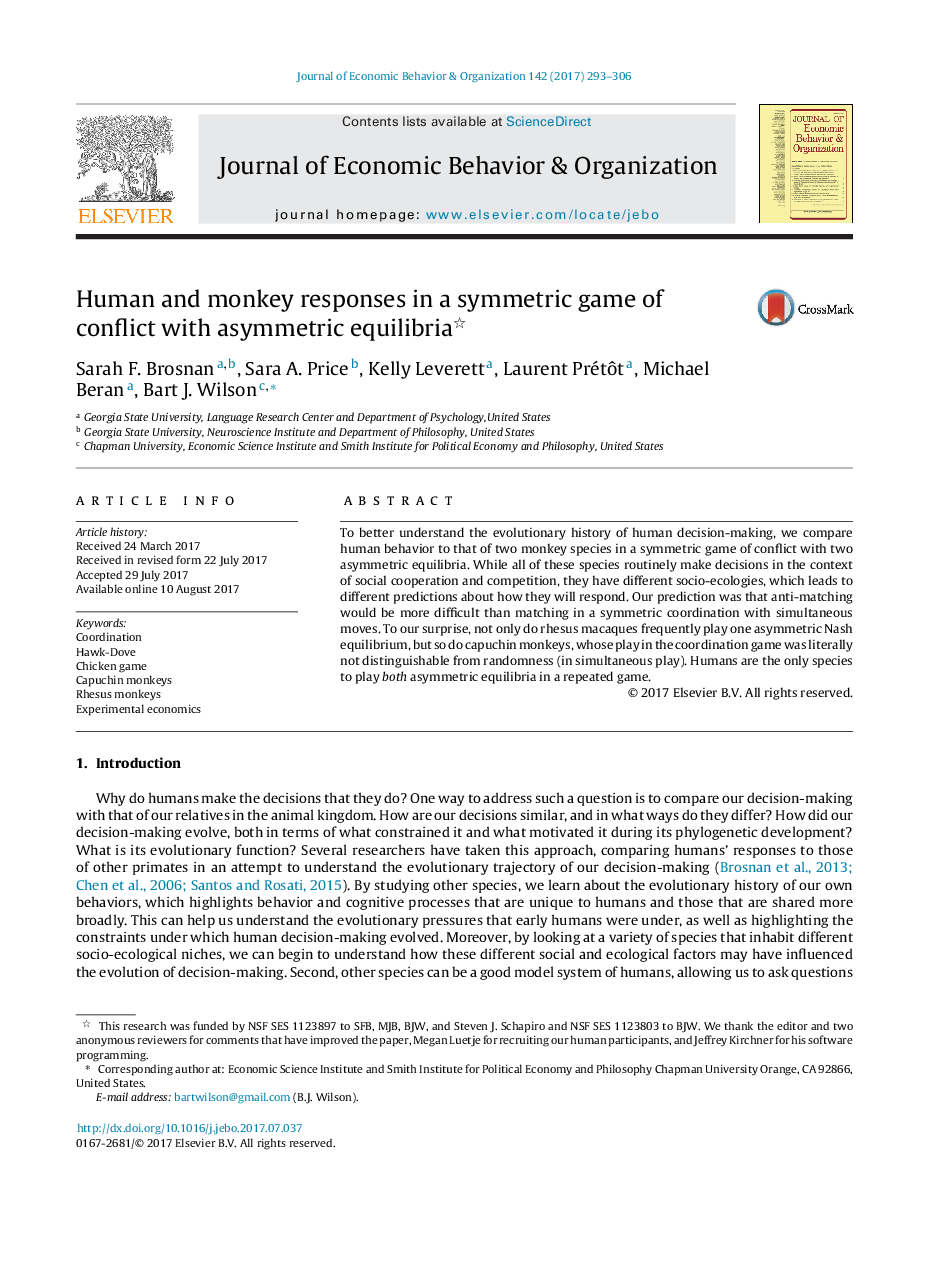| Article ID | Journal | Published Year | Pages | File Type |
|---|---|---|---|---|
| 5034466 | Journal of Economic Behavior & Organization | 2017 | 14 Pages |
â¢We compare human and monkey responses in a symmetric game of conflict.â¢Both rhesus macaques and capuchins played a Nash equilibrium in asynchronous play.â¢Humans were the only species to play both asymmetric equilibria in a repeated game.â¢These results suggest that multiple cognitive mechanisms underlie decision-making.
To better understand the evolutionary history of human decision-making, we compare human behavior to that of two monkey species in a symmetric game of conflict with two asymmetric equilibria. While all of these species routinely make decisions in the context of social cooperation and competition, they have different socio-ecologies, which leads to different predictions about how they will respond. Our prediction was that anti-matching would be more difficult than matching in a symmetric coordination with simultaneous moves. To our surprise, not only do rhesus macaques frequently play one asymmetric Nash equilibrium, but so do capuchin monkeys, whose play in the coordination game was literally not distinguishable from randomness (in simultaneous play). Humans are the only species to play both asymmetric equilibria in a repeated game.
